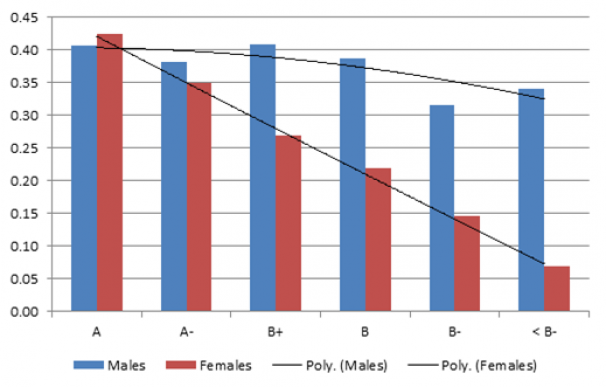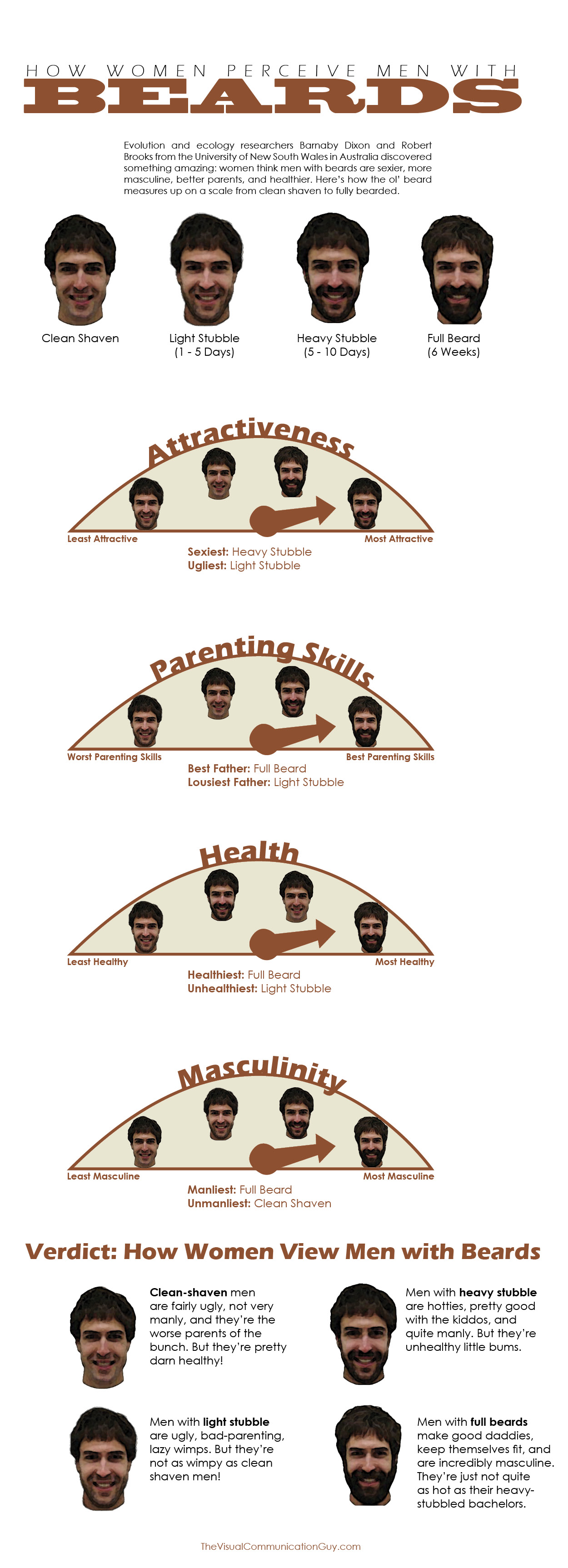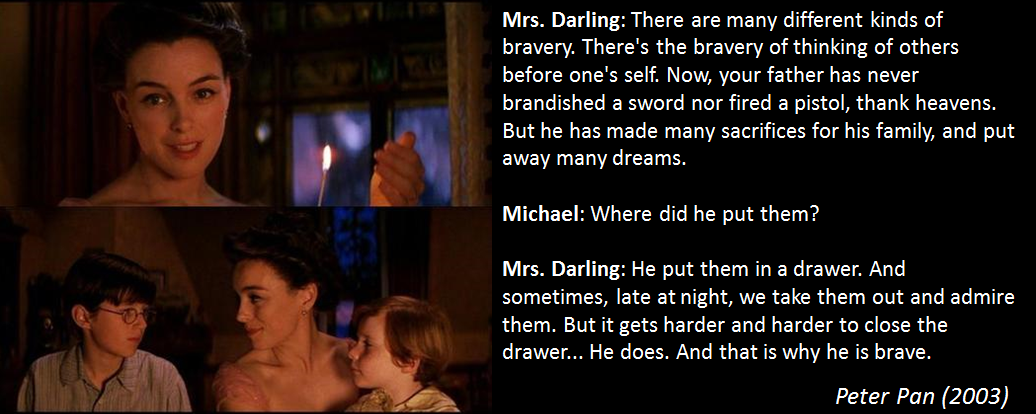Greg Mankiw linked to a chart from a Washington Post story by Catherine Rampell: Women should embrace the B’s in college to make more later. The chart, all by itself, is arresting.

What the chart shows is that if a man gets a lower grade (a B instead of an A) in Econ 101 his chance of majoring in econ is basically unaffected. But for women, there is a very strong and obvious correlation between their grade in Econ 101 and their willingness to major in economics. Just going from an A to an A- (still an A!) drops the likelihood of majoring in econ by about 7 points, from 42% to 35%.
This is a really important finding because it could answer the question of why so few women graduate in STEM courses, despite the fact that more women start them than men. STEM courses are much harsher than humanities, and so if you’re highly responsive to grades, you’re going to abandon STEM to get a degree in something less intimidating. But STEM courses also pay more, so women are sacrificing earnings to avoid lower grades. This could have important relevance for the gender gap, because it is pretty strong evidence that it’s not just preferences that are leading women to lower-paying jobs. As Rampell writes: “If women were changing their majors because they discovered new intellectual appetites, you’d expect to see greater flows into STEM fields, too.”
For me the big question is why women react more to grades than men do. Rampell has ideas (maybe men are overconfident? maybe they just care more about future salary than about grades?) but no solid answers. My initial reaction was to think that women might be more concerned with achievement overall, but my wife pointed out that men may be perfectionists too, but in other areas. Like sports and video games. That really made me think. After all, one major reason I never did sports much in high school was that I knew I didn’t have any amazing athletic ability, so why bother? And to this day I don’t like playing StarCraft 2 online because I know I won’t have the time to get really good at it. On the other hand, I do play a lot of Call of Duty, and I’m only mediocre at that game.
So I’m curious: what do you think makes women more sensitive to grades? And what impact do you think it is having on things like the gender gap and the lack of women in STEM careers?



